The closure of EduFootprint PLUS
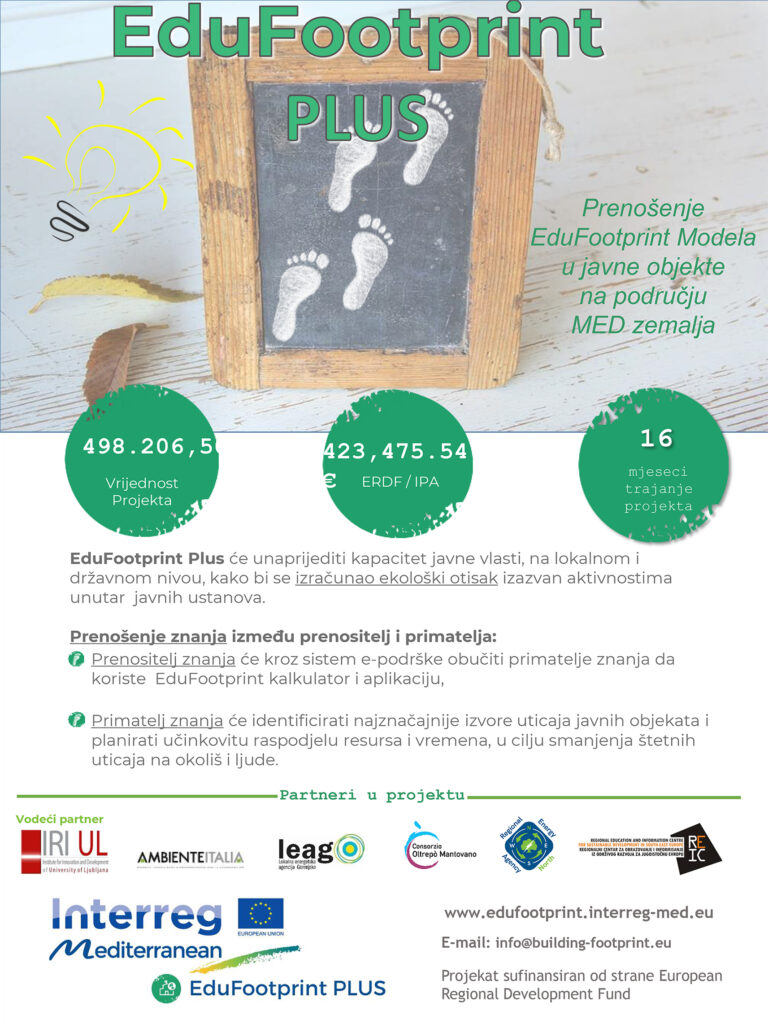
Today we are closing our 18 months long project, that was implemented under Interreg MED Programme, co-financed by the European Regional Development Fund, and implemented in the cooperation with pur project partners:
Institute for Innovation and Development of University of Ljubljana, Slovenia
Ambiente Italia srl, Italy
Local Energy Agency of Gorenjska, Slovenia
CONSORTIUM OLTREPÓ MANTOVANO, Italy
Regional Energy Agency North, Croatia.
The main aim of the project was to enhance the capacity of public authorities to calculate environmental footprint of activities in its buildings. This was done by using simplified life cycle approach identifying significant impact areas, and then improve users’ behaviours to reduce the overall footprint, through the transferring and capitalisation of EduFootprint project’s final products: calculator and APP.
REIC was responsible for fostering of EduFootprint methodology and approach at regional level, to cover territory of Bosnia and Herzegovina, Montenegro and Albania, engaging APs from each country: Sarajevo Economic Region Development Agency SERDA, Bosnia and Herzegovina, City of Mostar from Bosnia and Herzegovina, Municipality of Tirana from Albania, Old Royal Capital Cetinje from Montenegro. REIC organized webinars for APs in order to promote the project, to present the methodology and tools and foster its application at regional level. APs were involved in Final Conference in Italy, declaring the support to EduFootprint project through MoU signatory.
Not only the APS from region were involved in the project activities implementation, but the preliminary analyses of receivers’ contests and needs included survey which has been conducted in BiH, Montenegro and Albania, thus providing data to cover larger territory.
Institute of Blood Transfusion Sarajevo was the pilot building for testing the tools and applying the methodology. After the data collection, the calculator was completed; based on the results and in cooperation with the Institute representative the Improvement plan was produced. The complete methodology and the results of tools application were shared during the final conference in Mantova and final project presentation in Sarajevo, in June 2022.The representatives of the pilot building has been participating in the event in Sarajevo and further steps, after project closure has been agreed.
In order to involve larger audience, all material produced during the project: calculator, app, improvement plan, edu-kit, 15 video pills and 4 webinars, were translated to Bosnian and distributed among the audience. It will be also available through REIC pages. Considering the fact that REIC is educational and informational center, which organizes events and summer-schools tackling the same issues, we see a lot of opportunities to share the project results and introduce the tools to wider audience in future.
The final project presentation event, held in Sarajevo on June 10th 2022, was organized additionally to involve larger audience, targeting at public institution representatives, dealing with a building’s efficiency and footprint. The event attended representatives of 17 institutions, and resulted in arrangement of future presentation of the project within the institutions and potential future cooperation. The participation of the PPs in the event added a special significance.
REIC will continue to work on fostering the EduFootprint approach and methodology even beyond the end of the project, since it will contribute to our mission and promotion of good practices in the field of sustainable development.
On this occasion, we would like to thank to Interreg MED to make it possible, to all of our project partners for excellent cooperation during this challenging period, to all of associated project partners for the support their provided, as well as to all of the public and local authorities that took a part in the project.
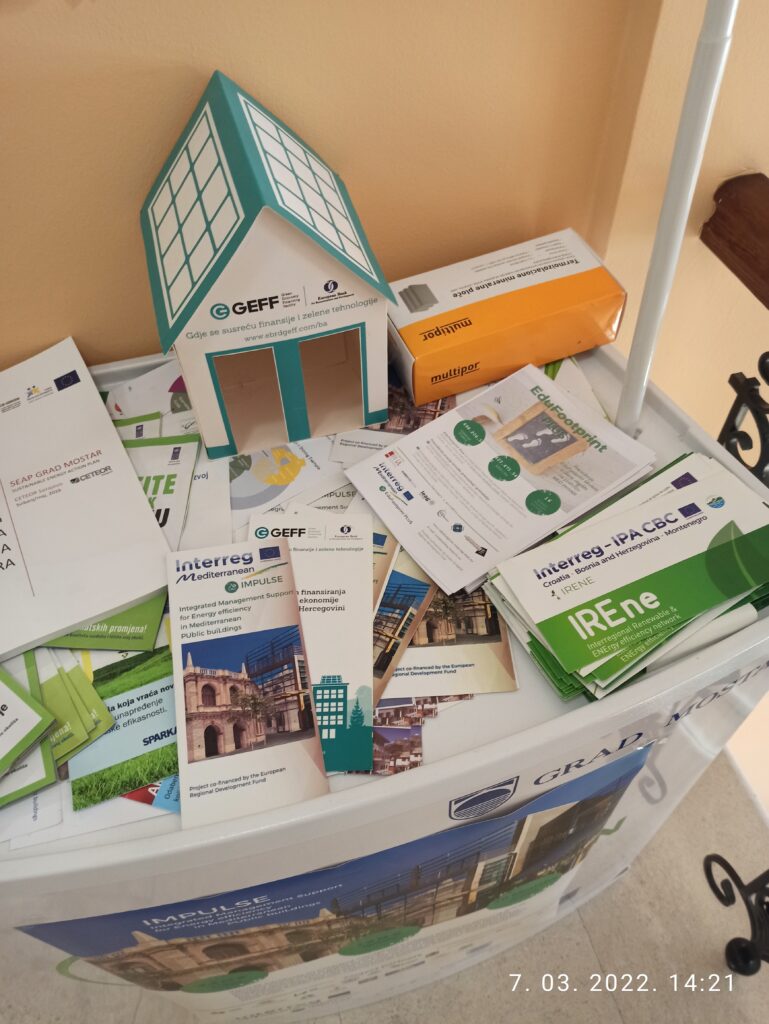
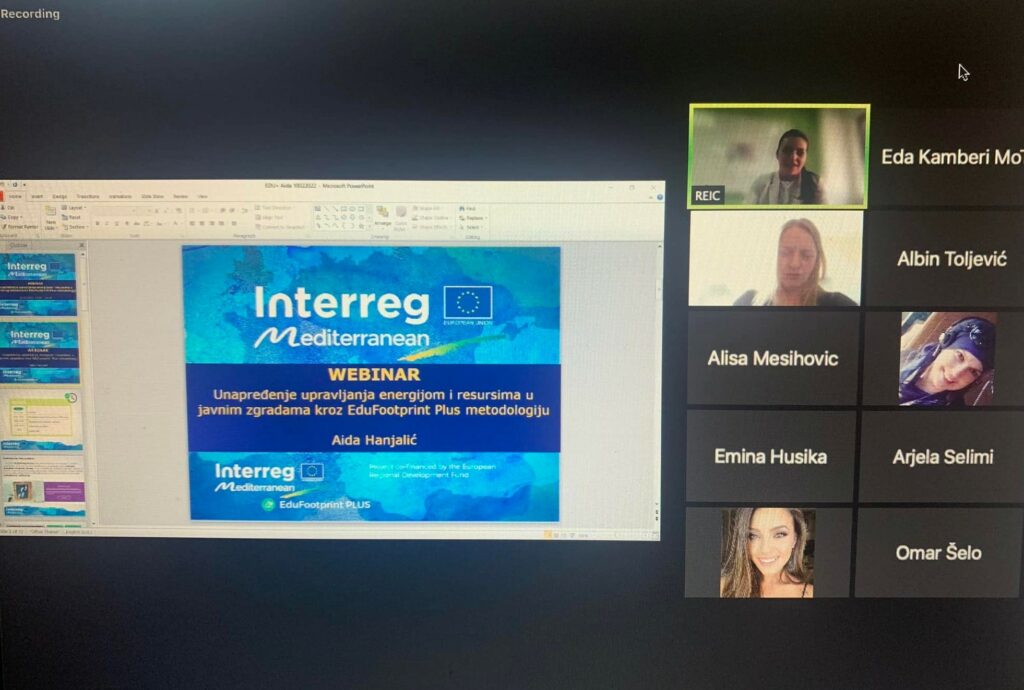

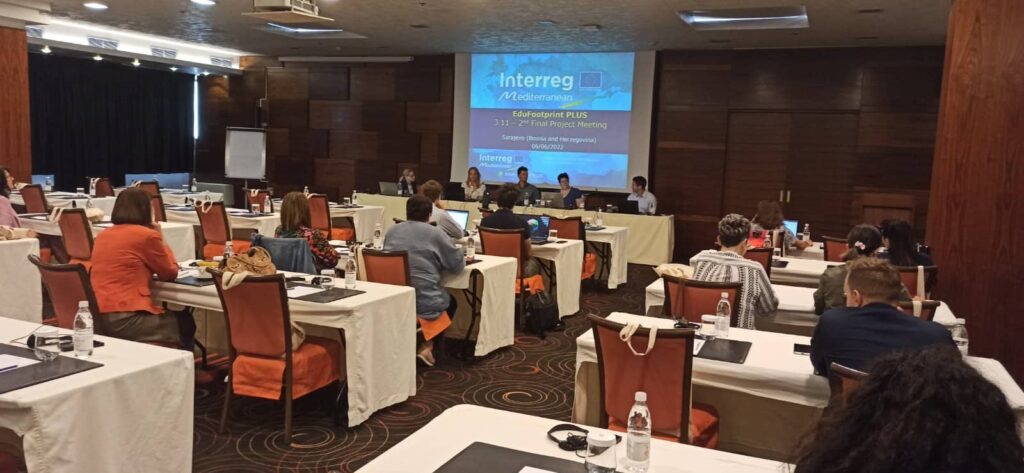
Zeleni hidrogen- važan element klimatski neutralne ekonomije i energetske nezavnosti Evrope
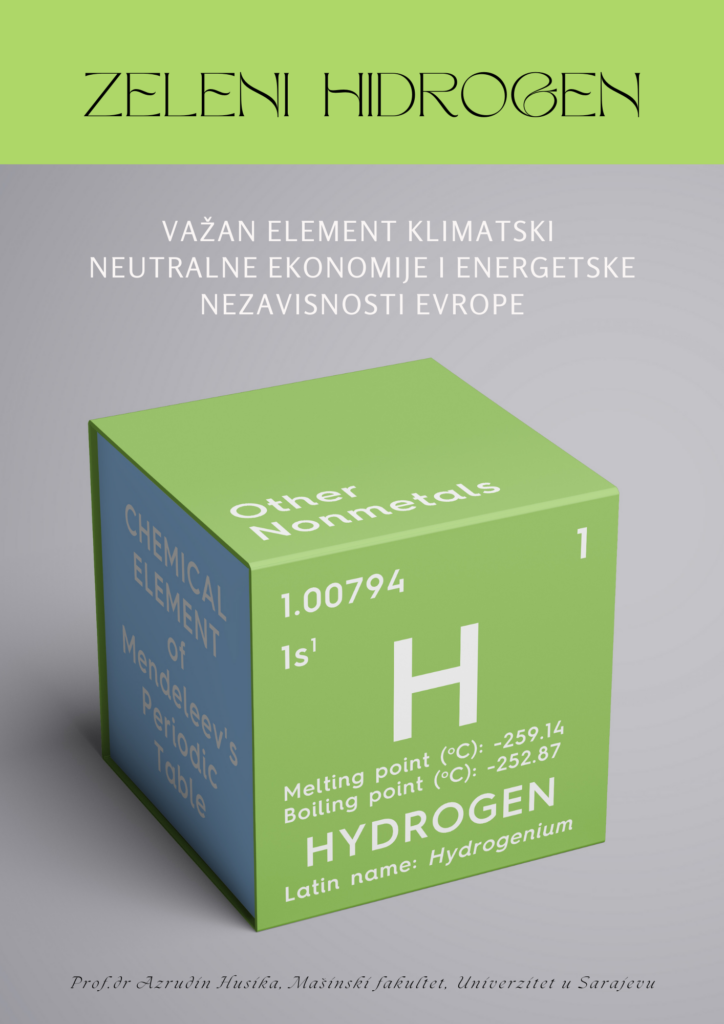
Više o Zelenom hidrogenu i njegovoj ulozi u postizanju klimatske neutralne ekonomije i energetski nezavisne Evrope pročitajte u analizi:
CEBB POZIV ZA KOMPANIJE
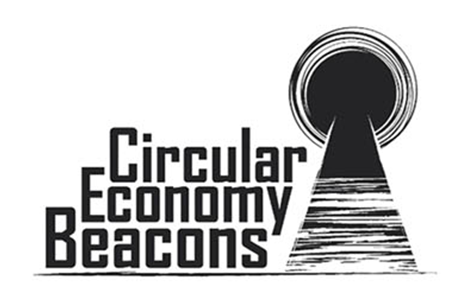
Regionalni centar za obrazovanje i informisanje iz održivog razvoja za Jugoistočnu Evropu – REIC i ove godine objavljuje poziv za privatne kompanije da učestvuju u međunarodnom projektu Circular Economy Beacons (CE BEACONS).
Regionalni centar za obrazovanje i informisanje iz održivog razvoja za Jugoistočnu Evropu – REIC je početkom 2021. godine postao sedmi član konzorcija koji od 2020. godine provodi međunarodni projekat Circular Economy Beacons (CE BEACONS). Projekat ima za cilj kreiranje jedinstvenog ekosistema koji će podržati inovacije i implementaciju cirkularne ekonomije. Osnovna ideja ovog projekta jeste stvaranje fizičkog prostora koji će omogućiti inovatorima da kreiraju, testiraju i komercijalizuju eko-inovacije i na taj način pomognu malim i srednjim preduzećima da implementiraju cirkularni model poslovanja. Osnovni cilj projekta jeste implementacija cirkularnih inovacija u mala i srednja preduzeća. S tim u vezi je kroz projekat previđeno da se izvrši procjena nivoa „cirkularnosti“ kompanije i ovom prilikom pozivamo Vas da se pridružite projektu na sljedeći način:
Consortium members of the Spatial Justice Erasmus + project
We are proud to present the Consortium members of the Spatial Justice Erasmus + project 1/6: Project Management and Coordination of the Project belongs to the #Wonderland platform for European architecture - European network of architects and urban and regional planners.
The network is focused on sustainable and inclusive topics in regeneration and development process’. Social cohesion, justice, accessibility and sustainability are core values, and the organization has numerous board members who are experts for various promising projects in Europe (Horizon, Creative Europe, Urbact, Interreg, UIA, Erasmus+, Cost Actions and New European Bauhaus).
The Austrian based organization’s aim is to foster exchange through different formats. Since the beginning, Wonderland has focused on exchange between professionals and citizens, how the vacant spaces can be a resource for the growing and changing cities and their challenges, while empowering grassroots initiative to have a sustainable impact on their built environment.
All about the partners read at the LINK